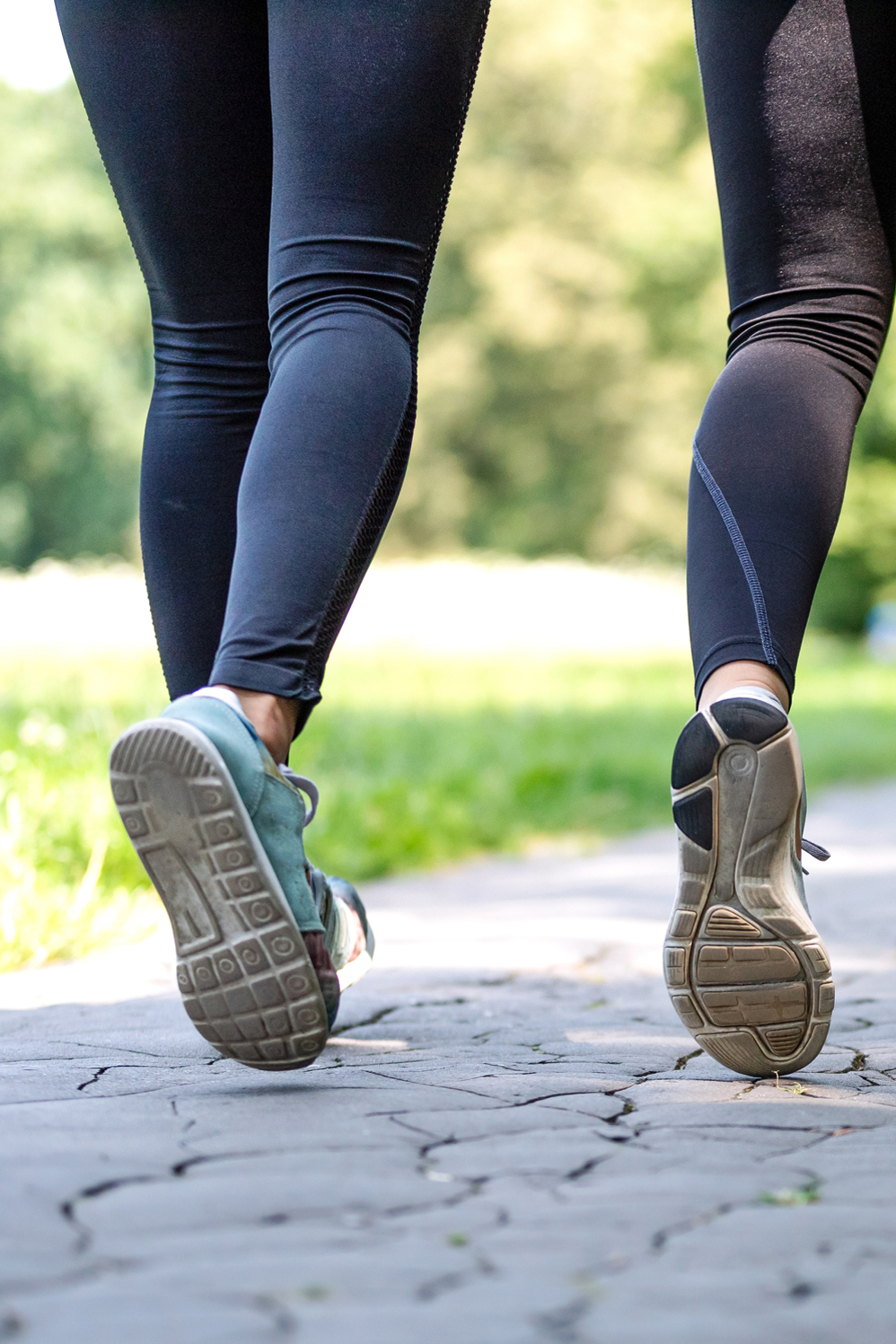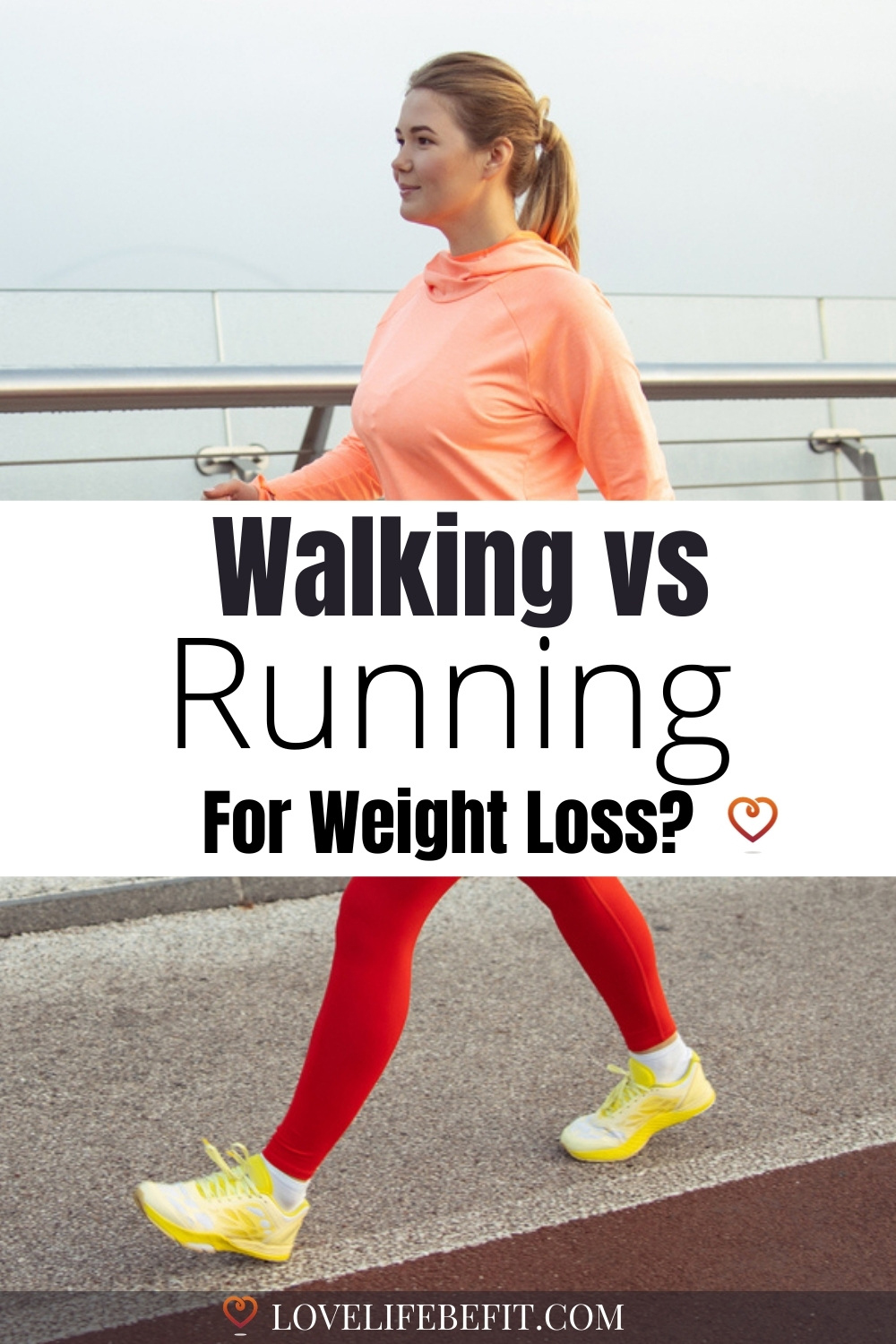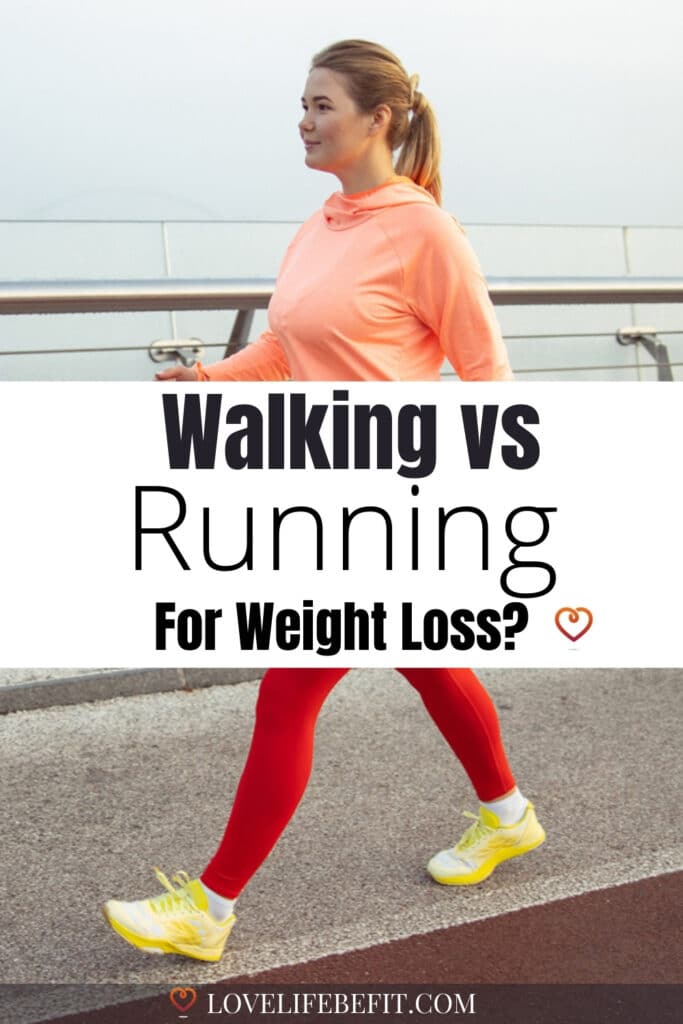Walking or Running: Which Is Better For Fat Loss?
There’s no question about it. If you want a great way to lose weight, try walking or running. But which is best for weight loss?
Both forms of exercise will boost your heart rate and are good for calorie burn. And they use similar muscles.
Running is a high-impact exercise loved by runners for its vigorous intensity. Walking is a low-impact activity, kinder on the joints but classed as a moderate exercise. So which should you choose for your weight loss journey?

The Biggest Walking vs Running Study
Published in 2013 in the Medical & Science in Sports & Exercise Journal by Williams, PT, The National Runners’ and Walkers’ Health Study is significant for the sheer volume of participants.
This study involved 15,000 walkers and 32,000 runners. Surveys were collated from participants at the baseline year and again 6.2 years later.
The four-page survey collated information on running and walking history, (average weekly mileage for the preceding 5 years, minutes required to run or walk a mile, frequency of runs and walks per week longer than 10 minutes, plus longest usual run or walk).
The survey also collected walkers’ and runners’ heights and current weights – to calculate body mass index (BMI), and waist circumference – an indicator of abdominal fat (belly fat).
That’s a lot of useful data and an unprecedented insight into the long-term effects of running vs walking.
Results
The study found that for both running (vigorous exercise) and walking (moderate activity), increases in energy expended (increases in MET hours per day), correlated to decreases in BMI and waist circumference.
So as expected, both walking and running more led to weight loss.
Where it gets interesting, is that weight loss was significantly greater for running than walking in men in general and for heavier women. Also running was better at preventing age-related weight gain.
The results of this study are a big contrast to previous conceptions such as this 2009 study, the American College of Sports Medicine Position Stand, which recommended moderate-intensity activity such as walking for weight loss and the prevention of weight regain.
So which study is correct? Should you be walking or running to lose weight?

Study Limitations
This huge survey was sent out to existing runners and walkers. People who were already doing something about their health and not complete beginners.
These participants were already healthier than the general population.
Plus, when comparing changes in exercise with weight changes, it’s not clear which came first.
Did the runners and walkers lose weight and then start exercising more? Or did exercising more cause their weight loss? If they lost weight first, certainly exercising helped with weight maintenance.
Health Benefits Of Running And Walking
There are many health benefits to running and walking.
Both will burn calories and help you lose weight, improve your cardiovascular health, reduce high blood pressure, and do wonders for your mental health.
Fast walkers live longer and this study found that just a 30 minutes walk three times a week reduces anxiety and depression.
But running can have additional benefits – it’s better at increasing bone density and runners are fitter with higher VO2 max scores (a measure of aerobic fitness).
A downside of running is the risk of injury. This study found a significantly higher risk of injury in runners vs walkers.
Running can be addictive – it’s always tempting to run too far too soon!
Related post: Running Benefits: Is Running The Best Exercise?

Which Burns The Most Calories?
If you want to burn more calories, running is best. You can use this calculator to estimate the calories burned running or walking.
Running is a higher-intensity aerobic exercise and burns more calories per minute. The exact amount depends on your running speed, your body weight, and your fitness level but it’s approximately 100 calories per mile.
Walking burns around 80 calories per mile but it can take you a lot longer to cover the same distance.
If you only have a limited amount of time to exercise, running is best.
Related post: Is Running Good For You? (12 Science-Backed Health Benefits)
What’s Best For You?
Running burns more calories but it doesn’t mean it’s the best way for you to lose weight.
If you’re starting from a very low level of physical activity or you’re carrying a lot of extra weight and excess body fat, you’ll get the same benefits from a walking workout as you would from trying to run.
It can be easier to keep to a regular walking routine so you’ll see better long-term results.
When it comes to walking versus running – pick an exercise program you’ll enjoy, that’s challenging but not completely outside your comfort zone.
The reduced risk of injury is a good reason to choose walking over a running routine – getting injured is a major setback. You won’t lose weight stuck on the couch!
Related post: Walking For Weight Loss: Everything You Need To Know

Walking or Running For Weight Loss?
When you’re trying to lose weight and reduce your overall body fat, all physical activity is helpful – especially if you don’t replace the calories you burn by eating more! Eating a healthy diet is important for any weight loss plan.
Running and walking have similar health benefits but running burns more calories because of the extra intensity of the exercise.
If you’re a complete beginner or carrying a lot of excess weight, it’s best to start with a walking program.
Aim to walk at a brisk pace and as you get fitter, make your walking more challenging. Vary the intensity of your walks, try incline walking or even power walking.
But don’t overdo it! Even walking has the risk of overuse injuries. So work steadily towards your fitness goals instead of doing too much too soon. This walking plan will help you get results.
If you’re starting from a higher fitness level, running can be the best choice. Or you can always start with walking and progress to a running for weight loss program.
Alternatively, the Couch to 5K Plan uses the run-walk-run method to ease you into continuous running.
Running and walking will mainly work your core and lower body so it’s a good idea to add some strength training for your upper body to your workouts. These bodyweight exercises are ideal for both runners and walkers.
When it comes to walking vs running, both are good for you – and both can help you reach and maintain a healthy weight.







